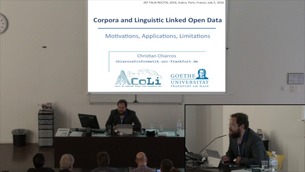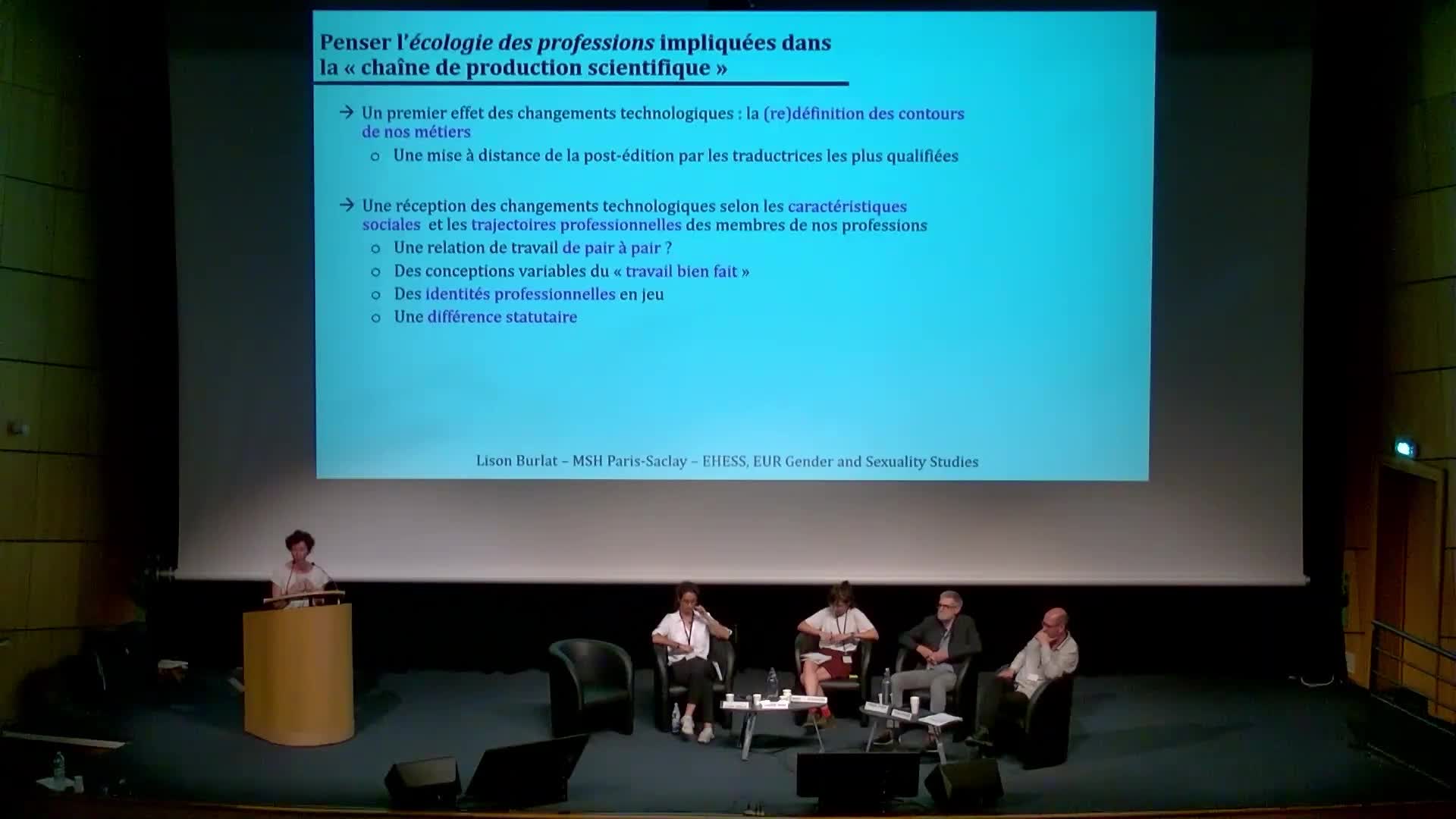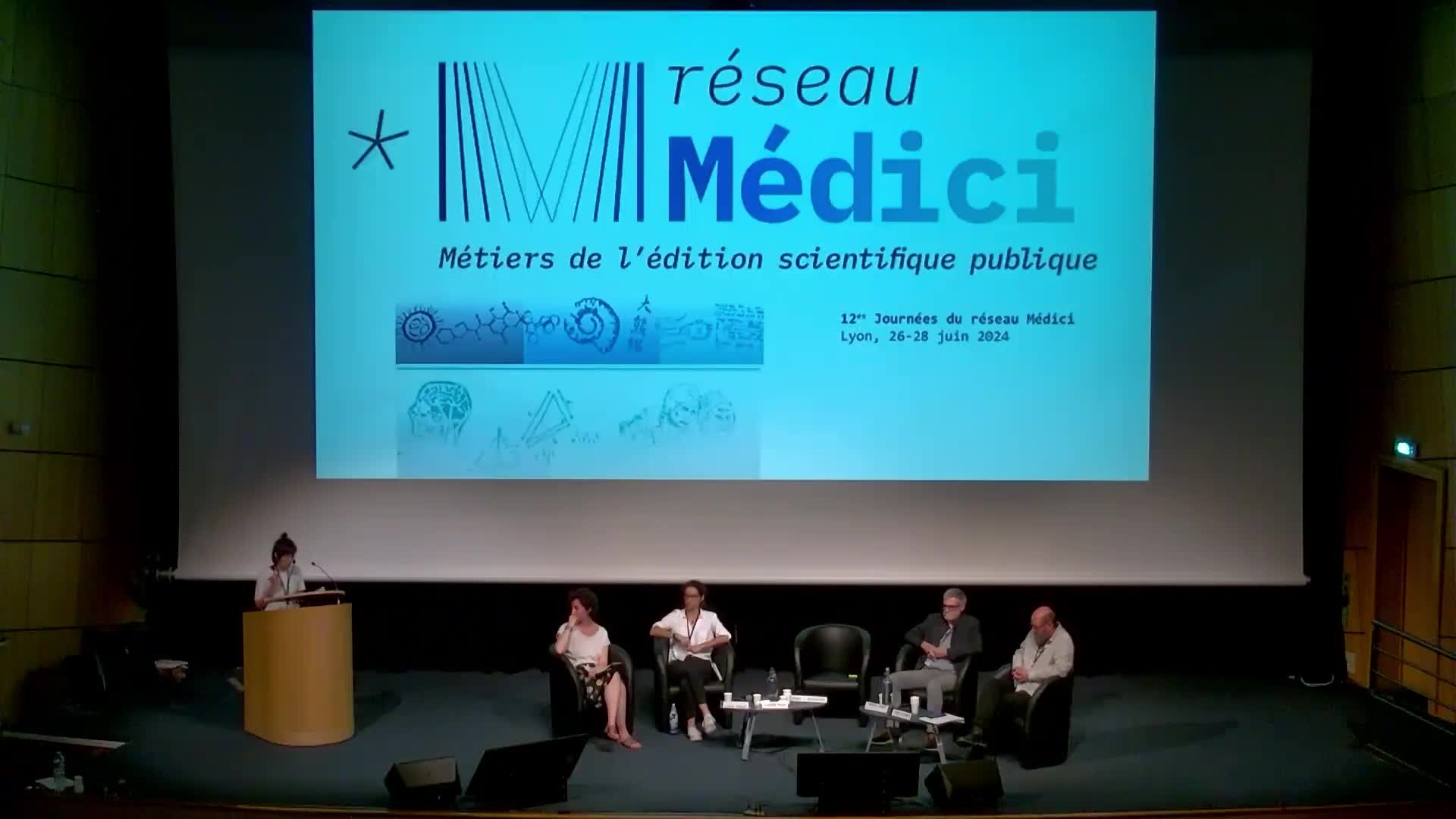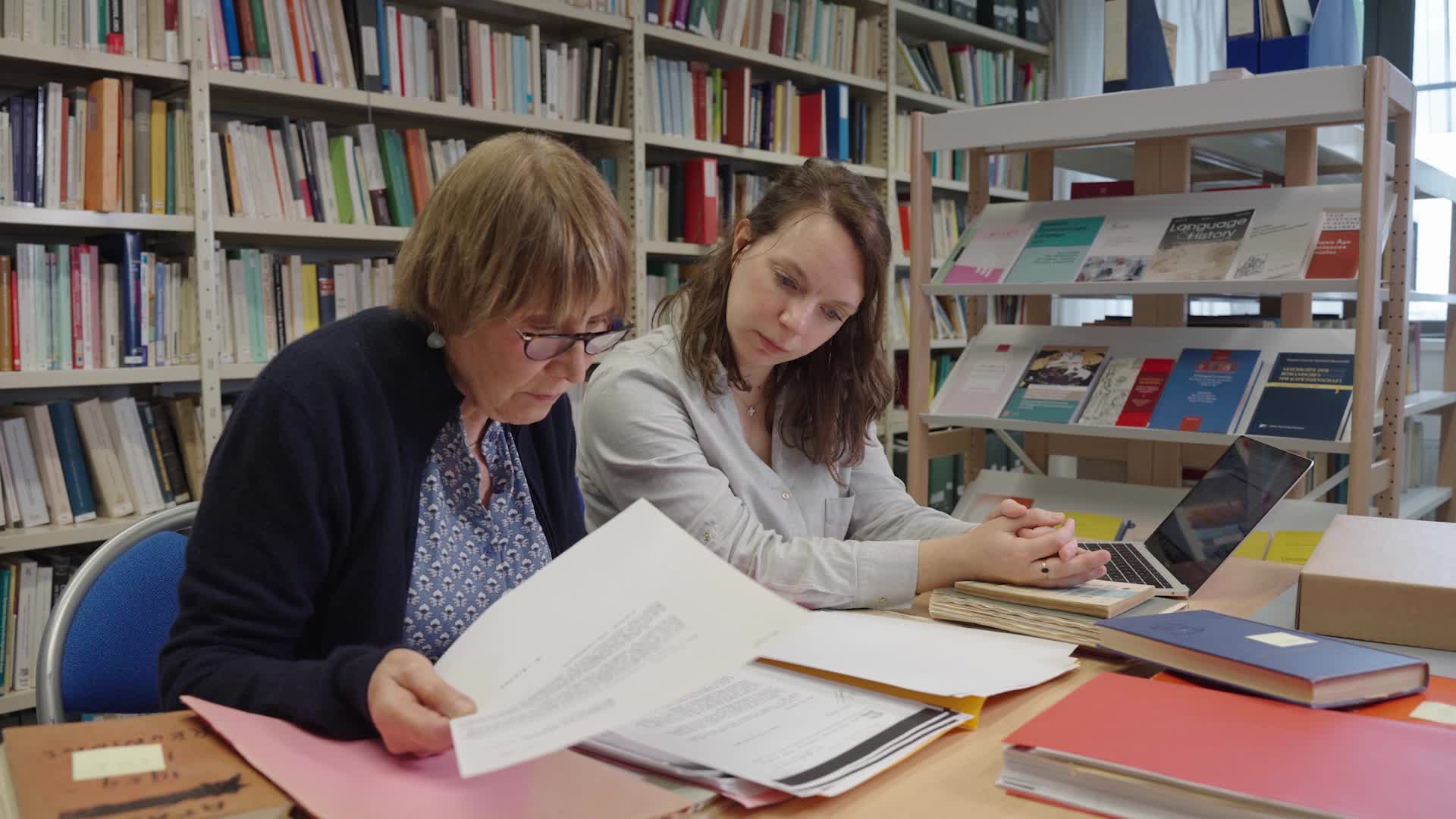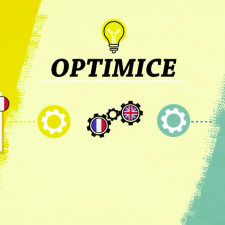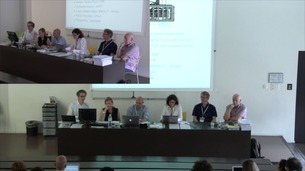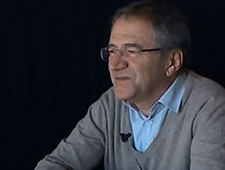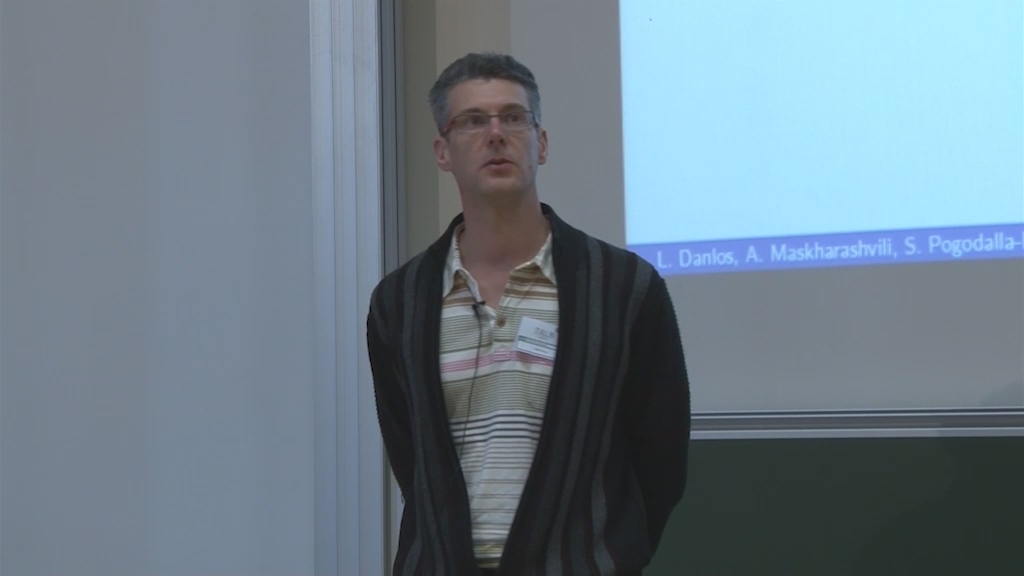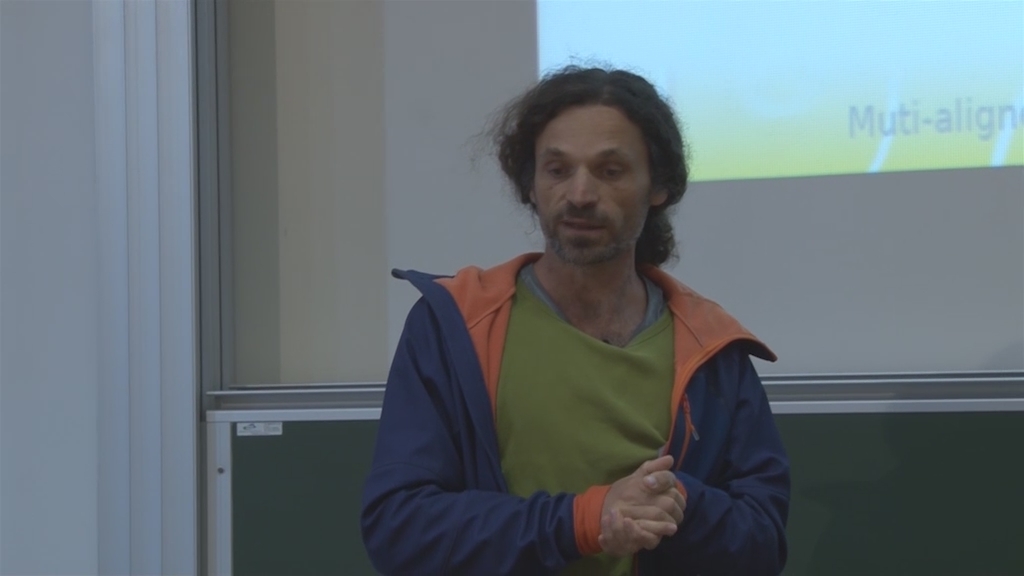Notice
Conférence invitée de Mark Liberman - From Human Language Technology to Human Language Science
- document 1 document 2 document 3
- niveau 1 niveau 2 niveau 3
Descriptif
JEP-TALN-RECITAL 2016 - Jeudi 7 juillet 2016
Conférence invitée
From Human Language Technology to Human Language Science
Mark Liberman
Résumé : Thirty years ago, in order to get past roadblocks in MachineTranslation and Automatic Speech Recognition, DARPA invented a new wayto organize and manage technological R&D: a ``common task'' isdefined by a formal quantitative evaluation metric and a body ofshared training data, and researchers join an open competition tocompare approaches. Over the past three decades, this method hasproduced steadily improving technologies, with many practicalapplications now possible. And Moore's law has created a sort ofdigital shadow universe, which increasingly mirrors the real world inflows and stores of bits, while the same improvements in digitalhardware and software make it increasingly easy to pull content out ofthe these rivers and oceans of information.
It's natural to beexcited about these technologies, where we can see an open road torapid improvements beyond the current state of the art, and anexplosion of near-term commercial applications. But there are someimportant opportunities in a less obvious direction. Several areas ofscientific and humanistic research are being revolutionized by theapplication of Human Language Technology. At a minimum, orders ofmagnitude more data can be addressed with orders of magnitude lesseffort -- but this change also transforms old theoretical questions,and poses new ones. And eventually, new modes of research organizationand funding are likely to emerge.
Intervention
Dans la même collection
-
Conférence invitée de Christian Chiarcos Corpora and Linguistic Linked Open Data: Motivations, App…
CHIARCOS Christian
JEP-TALN-RECITAL 2016 - Mardi 5 juillet 2016 Conférence invitée Corpora and Linguistic Linked Open Data: Motivations, Applications, Limitations Christian Chiarcos Résumé : Linguistic Linked Open Data
Sur le même thème
-
Ce que la TAN et l'IA générative veulent dire pour la division du “travail du texte” en SHS
BURLAT Lison
Lison Burlat, éditrice à la MSH Paris-Saclay, présente ici des éléments de réflexion sur les conséquences de la traduction automatique neuronale et de l'intelligence artificielle sur le travail du
-
Traduire en sciences humaines et sociales : interroger le bouleversement des pratiques et des condi…
VAN EFFENTERRE Marie
Marie Van Effenterre est traductrice indépendante et co-présidente de l'Association pour la traduction en sciences sociales (ATESS). Elle s'interroge ici notamment sur les effets que la traduction
-
HTAL : de la collecte au dépôt
LéON Jacqueline
FAIVRE Camille
Le projet HTAL, Histoire du traitement automatique des langues est un fond inédit, composé d'environ 1000 documents. Jacqueline Léon, directrice de recherche émérite au CNRS, les a collectés tout au
-
Rédiger et traduire des métadonnées pour un article : suivez le guide !
Présentation en vidéo du guide "Rédaction et traduction des métadonnées" à destination des auteurs et comités éditoriaux de revues afin d'améliorer le référencement des publications à l'international.
-
Table ronde - Salon PAREIL
JEP-TALN-RECITAL 2016 - Vendredi 8 juillet 2016 Salon PAREIL (Partenariats Recherche et Industries de la Langue) Table ronde Animée par Pierre Zweigenbaum Résumé : La table ronde est centrée les
-
Bilinguismes et compliance phonique
JEP-TALN-RECITAL 2016 - Vendredi 8 juillet 2016 Session commune JEP/TALN 3 Bilinguismes et compliance phonique Marie Philippart de Foy, Véronique Delvaux, Kathy Huet, Myriam Piccaluga, Rima Rabeh and
-
Traduire deux Nobel de littérature, Gao Xingjian et Mo Yan
BARYOSHER-CHEMOUNY Muriel
DUTRAIT Noël
Noël DUTRAIT est professeur au département d’études asiatiques en langue et littérature chinoises à l’Université d’Aix-Marseille où il dirige l’équipe de recherche sur les « Littératures d’Extrême
-
04a - Grammaires phrastiques et discursives fondées sur TAG : une approche de D-STAG avec les ACG (…
Sessions orales TALN 2015 – Mardi 23 juin 2015 Session Syntaxe et paraphrase Grammaires phrastiques et discursives fondées sur TAG : une approche de D-STAG avec les ACG Laurence Danlos,
-
06a - Typologie des langues automatique à partir de treebanks (taln2015)
Sessions orales TALN 2015 – Mardi 23 juin 2015 Session Classification et Alignement Typologie des langues automatique à partir de treebanks Philippe Blache, Grégroie de Montcheuil et Stéphane
-
09b - Extraction automatique de relations sémantiques dans les définitions : approche hybride, cons…
Sessions orales TALN 2015 – Mardi 23 juin 2015 Session Sémantique Extraction automatique de relations sémantiques dans les définitions : approche hybride, construction d’un corpus de relations
-
02b - Multi-alignement vs bi-alignement : à plusieurs, c’est mieux ! (taln2015)
Sessions orales TALN 2015 – Mardi 23 juin 2015 Session Traduction Multi-alignement vs bi-alignement : à plusieurs, c’est mieux ! Olivier Kraif Résumé : Dans cet article, nous proposons une
-
04d - Extraction automatique de paraphrases grand public pour les termes médicaux (taln2015)
Sessions orales TALN 2015 – Mardi 23 juin 2015 Session Syntaxe et paraphrase Extraction automatique de paraphrases grand public pour les termes médicaux Natalia Grabar et Thierry Hamon Présenté


